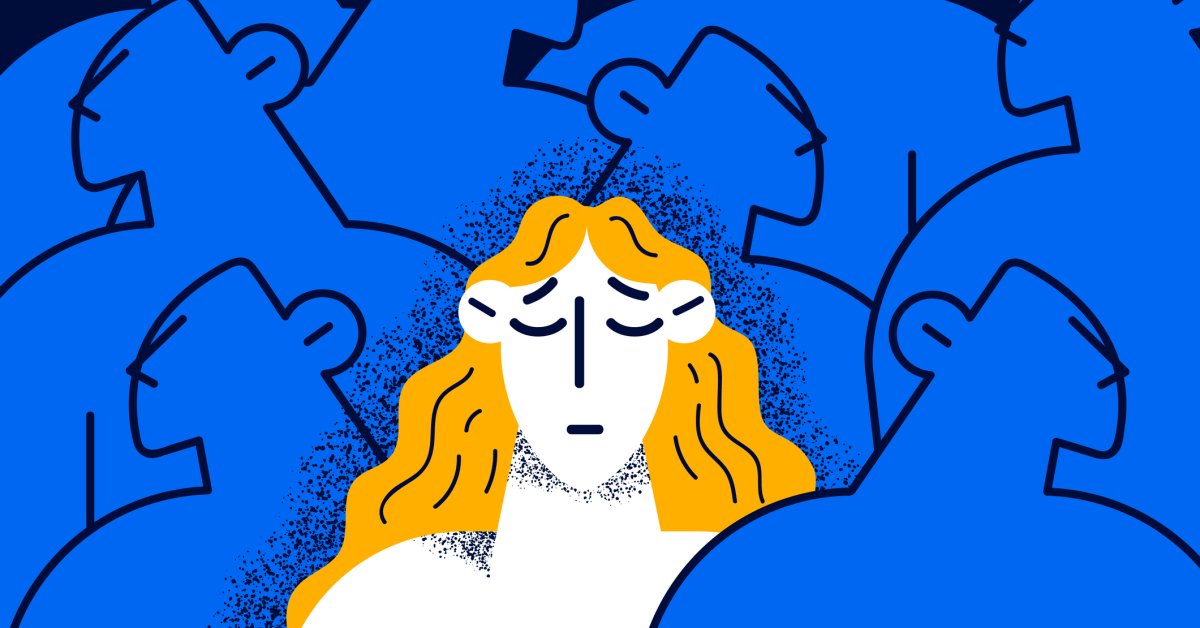I have always had the urge to lie. As a child, I told classmates that I had a new puppy at home. I was afraid of dogs and had never even asked my parents for one, but I understood that pets were attractive to other six year olds. When Julie, a French girl with a blunt haircut, came over for a playdate, she looked skeptical when I told her my dog was in the other room. “He’s sleeping,” I explained. When she accused me of lying, I finally introduced her to Lucky, my plush stuffed dalmatian, holding him the way I had seen my mom cradle my baby brother. “Shh,” I whispered to Julie. She never came over again.
I told white lies, mostly. “I’m majoring in Biology,” I once rattled off to a stranger at a nail salon despite having zero interest in science. Other lies were random, like when I told a crush that I had spent the previous Saturday night at a party with Adrian Grenier (nope), and that I had been in seven serious relationships before (I was 26 and had two ex-boyfriends).
Some lies were bigger and more serious, like the Sunday evening I woke up in the Emergency Room after blacking out at brunch and falling down a flight of stairs. I had been taken to the hospital in an ambulance, and because I was only 24 and still on my parents’ health insurance plan, I panicked at the thought of them receiving a bill in the mail. The truth about my blackout seemed too horrible to tell them; I didn’t want them to worry. So I told them I had been hit by a cab instead.
Of all the people I lied to, I was the best at lying to myself. Researches have dubbed this act “self-deception,” explaining that it involves a degree of mental dissociation. I knew my blackouts were dangerous, problematic, and unmanageable, but I was entirely unwilling to give up drinking. So I developed mental processes that allowed me to ignore selective memories and told myself what I wanted to hear: When I woke up with vomit in my hair after heavily drinking the night before, I decided I had just gotten carsick on the cab ride home. If I blacked out and cried, it was because I was stressed about work. When I went home with a guy I couldn’t remember meeting, I pretended it was a funny story. I switched from vodka to tequila to white wine to beer to vodka again, telling myself this time would be different. I wanted to believe I had control over the way my brain and body processed alcohol, but the truth was I never had any idea what would happen once I started to drink.
Read More: How to Tell If Someone Is Lying to You, According to Body Language Experts
There were nights where I tripped on sidewalks and curbs, the ground rushing up underneath me until I smacked down face forward. The initial contact occasionally jolted me out of a blackout, the impact searing into my palms and knees and sending a message to my brain to get up. I always bounded up quickly, reassuring everyone around me that I was fine. I would try to shake the pain off, but once I became aware of it, it was harder to ignore. Uncovering the truth about my blackouts was a similar shock to my system. After years underwater, I was finally coming up for air and examining what was left of my life. I realized I hadn’t just been lying to myself about how alcohol affected me; I had been lying to myself about why I drank in the first place. I never let myself admit how hurt and scared I felt at 16, or 24, or 26. I was ashamed of having feelings, so I buried them.
When I got sober at 28, I started to parse through my lies. There were so many: The excuses I invented for missing plans when I was painfully hungover, the exaggerated details about my love life, the reality of how unmanageable my drinking had really gotten. I couldn’t bear the idea of my friends and family seeing me at my lowest, so I constructed a house—brick by brick, lie by lie—to protect myself.
Strangely enough, if you had asked me when I was still drinking, I would have told you I was an honest person. Lying and keeping secrets from people wasn’t something I did to be cruel; it was a survival mechanism. Research shows that primates evolved the tendency to tell lies to maximize survival, and a 2018 study explains that false denial can serve as a coping tool for managing shame and guilt. I was dreadfully uncomfortable in my own skin and desperate to be someone, anyone, else. If you felt as bad as I did, I often thought, you would lie too. It seemed natural to alter the truth when my own reality was painful. I occasionally worried that my tendency to embellish made me a bad person, but I justified the behavior by telling myself that my lies were innocent; I wasn’t trying to hurt anyone, but rather attempting to salvage myself.
In recovery, I started to understand that lying was a tool many picked up early in life to cope with feelings of discomfort, inadequacy, and internalized shame about my body. Alcoholism, I learned, involves an inability to be honest with ourselves and other people, not only about our drinking but also about the inner workings of our minds. I was surprised to discover that alcohol use disorder can actually cause damage to parts of the brain like the frontal lobe. Such damage, it turns out, has been shown to increase the potential for behaviors like risk-taking, the disruption of decision-making, and lying over time.
But I had been lying long before I took my first drink. Maybe some children simply make up stories, their wild imaginations running rampant. I had been coached to lie by the person who sexually assaulted me when I was a child. I was taught to withhold the truth from my parents and other adults in my life, and the trauma stopped me in my tracks, rewiring my brain to invent lies whenever the truth was too ugly. When I discovered alcohol years later, my lying habit simply escalated.
Secrets keep us sick. For years I had been in denial about my struggles with alcohol, as well as the truth about my abuse. Until I got honest with myself, I could not begin to heal. Now, if I wanted to truly recover, I needed to begin practicing rigorous honesty in all areas of my life.
In the spirit of honesty, I’ll be candid here: This did not come easily to me in early sobriety. I was experiencing my emotions for the first time in over a decade, and disclosing giant truths to my family and therapist. Still, I was disappointed to discover how much of a knee jerk reaction lying had become. When a coworker asked me about my weekend on a Monday morning, I felt the urge to fib and invent stories about fun parties even though I had spent the last 48 hours in recovery meetings or horizontal on my couch. Without the drama I created when I was drunk—Who had I texted the night before? Was everyone mad at me?—my life was calmer. And, truthfully, sometimes I missed it: the way I could escape into the distraction of managing chaos. In the quiet, I had to face the parts of myself I wanted to avoid.
I had too much to lose to pick up lying again. In recovery groups, they say that there is a strong link between addiction and loneliness, both in the physical and emotional sense. My secrets kept me isolated from myself; I told lies so I could become someone else, and in the aftermath of lying I often withdrew from those closest to me. It was a vicious cycle that kept me trapped in shame, and I was ready to break free from it.
A therapist once told me that trauma causes separation, while healing means integration. When I was drinking, it was painful to admit how many mornings I woke up feeling absolute terror and demoralizing shame over the night before. I separated from my drunk self, disturbed by how little I cared about what happened to me when I blacked out. I also separated from my inner child, the little girl who had been taught to lie as a form of protection. In recovery, I learned to make space for all the younger versions of myself. I paid attention to the feelings and fears over which we lied and drank, and I began to learn to comfort us all.
Honestly, there are still moments I want to lie: When I forget to send an email, or haven’t seen the movie everyone is talking about, or want to avoid conflict. I’m not perfect. But I continue to work to promptly admit when I’ve been dishonest with myself or someone else. The self-esteem and inner peace I have gained since I kicked lying in sobriety is what I searched for in every drink and dishonest breath.
From Drinking Games by Sarah Levy. Copyright © 2023 by the author and reprinted by permission of St. Martin’s Publishing Group.
More Must-Reads From TIME


